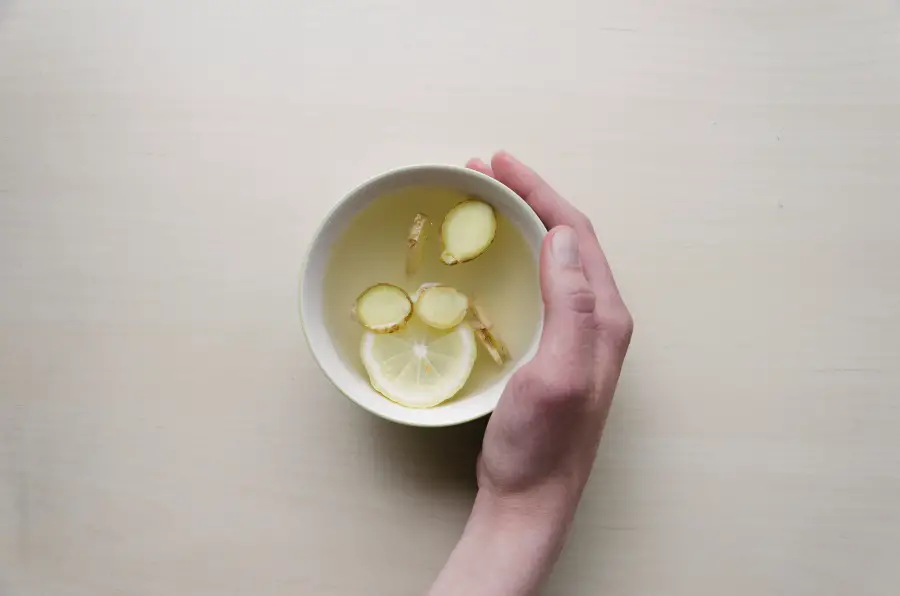5 Foods to Ward off the Flu this Autumn

You wake up your whole body aches, you have a high fever and what you thought was just a cold is something much, much worse. If you’ve ever had the flu you’re familiar with how much more severe it is than just a regular cold or upper respiratory infection. Not only are the symptoms more severe they are longer lasting. The average flu can stick around for up to 2 weeks and that’s not including if there are other complications like pneumonia or concurrent infections. Avoiding the flu should be a top priority this time of year. Even if you’ve never had it, or if when you did you healed quickly you still want to guard against it so that you don’t spread it to others or risk your own life.
Standard advice for avoiding the flu includes getting a flu vaccine and regular hand washing. While these things are good advice, in recent years the flu vaccine and the actual virus spread have been a mismatch leaving many unprotected. Washing your hands in warm water for at least a minute a few times a day is a great way to avoid infections of all kinds, but it’s not always a perfect science and even if you do wash your hands every time you’re near a sink, there’s still a chance you’ll come down with something.
If you’re doing all the things you can, washing your hands, cleaning heavy trafficked areas like doorknobs and even wiping down your phone, there are a few more things you can add into your routine to help boost your flu protection.
Good nutrition is important year round, and during the colder months, there’s no better way to add in a little kick of prevention to your life than through your diet. Making a few changes or adding in a few foods to your routine may be just what you need to make it through autumn flu-free.
 1. Boosting your beta-carotene
1. Boosting your beta-carotene
Beta-carotene is a precursor to vitamin A, and when you eat it your body will convert it into this amazing vitamin. Vitamin A is important for many of your body’s processes like vision and healthy skin, but during this article, we’re focusing on a little-known benefit.
Vitamin A can help keep your mucous membranes healthy and functioning at optimal efficiency. You may not like to think about it but your mucous membranes are an important security system for your body. Your nose helps filter the air you breathe and can help block viruses from entering your body. Healthy mucous membranes are key to stopping the flu, colds, and other viruses from getting into your body and setting up shop.
Beta-carotene is what makes vegetables have red or orange pigments, so foods like carrots and sweet potatoes are high in beta-carotene and make great additions to your menu this fall. While eating these make sure you are keeping an eye on your other health issues. A normal dietary absorption rate of beta-carotene is usually no cause for alarm but if you’re using supplements as a shortcut, you should be aware that Vitamin A can interact with some medications, so make sure you’re keeping your doctor up-to-date on all supplements you’re taking.
As a bonus, a diet rich in vitamin A might help keep your cognitive abilities sharp, making you better at problem-solving, more creative, and generally feeling a bit smarter.
2. Three cheers for Vitamin C
Vitamin C is important to the repair of your body, the health of your immune system and the health of your skin, teeth, and bones. It is also really great at reducing your risk for flu, and even heart disease.
While you may have heard the good news that vitamin C can help you fight infection or even prevent it, you may not be aware of the variety of foods available to get this important vitamin on board for the fight.
Oranges and other citrus fruits are obvious, but many people miss out on the magic of dark leafy greens which are also high in vitamin C. Adding some broccoli, spinach, or swiss chard to your menu rotation can be a great way to increase your vitamin C levels without getting burned out on orange juice and tangelos.
3. Dishing up vitamin D
Salmon is a great addition to your grocery list, boosting protein and those incredible fishy oils that help with depression, sleep, gut health and more, it is also an excellent source of vitamin D which can help your immune system be it’s very best.
Vitamin D is also important to help your body absorb and use other vitamins and minerals such as iron which can help your heart and lungs through boosting the iron in your blood supply and keeping your body at its best.
While Vitamin D is mostly found in fish, meats, eggs, and some enriched dairy, vegans have nothing to fear because it’s also available in plant sources too like spinach, legumes, and beans.
 4. Zooming on Zinc
4. Zooming on Zinc
Up until this point, we’ve mostly been focused on vitamins, but minerals are important as well. Zinc is a trace mineral found in a variety of foods and helps your body repair damage to cells and also increases efficiency and accuracy in creating and maintaining your DNA.
Zinc can help your immune system work better in preventing disease but can also help you fight off an infection once you have it. Zinc is often thought to only be available in meat and dairy products but doesn’t overlook amazing options like chickpeas and legumes for more options to add them to your meals.
5. Hydrate, hydrate, hydrate
Your body is made mostly of water and needs a fair amount to keep things moving smoothly. Water intake often suffers in the cooler months, so it’s important to make a water plan and stick to it. Since it’s not cold outside many people forgo this important advice, trying to stay warm, but even brewing black tea and sipping on that can help you stay hydrated. As a bonus, there are compounds in black tea that can also help boost your immunity.
Whatever you do to avoid flu, whether it’s vaccination and hand washing, or diet changes, make sure you know what to do if you’re exposed. If you start to feel ill, keep an eye on yourself, rest more, don’t go out if you’re actively infected. Keeping others from getting sick can be as simple as ordering in, and taking a sick day.







